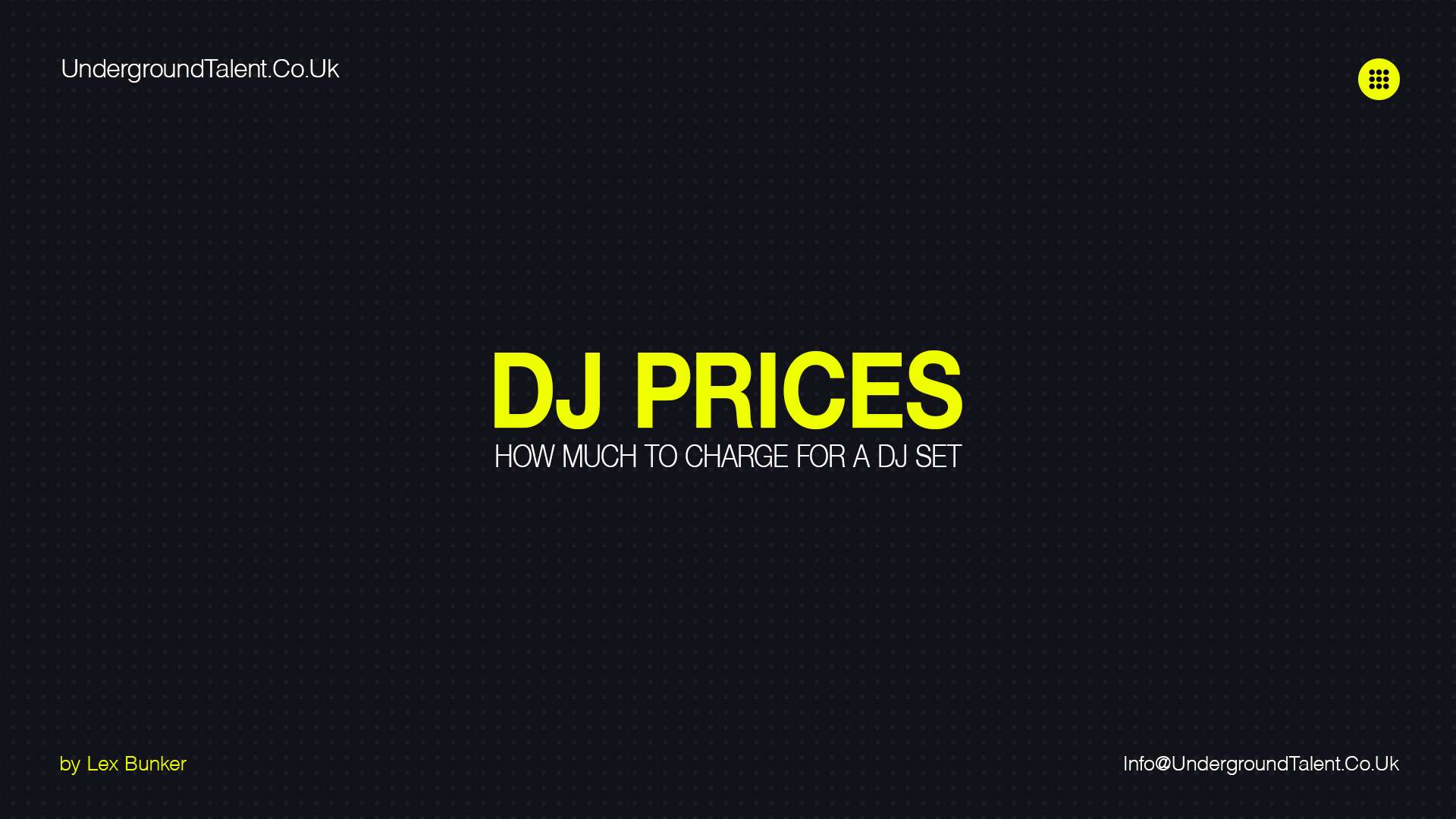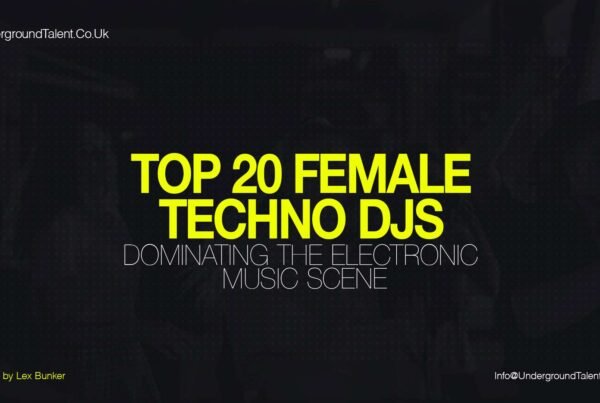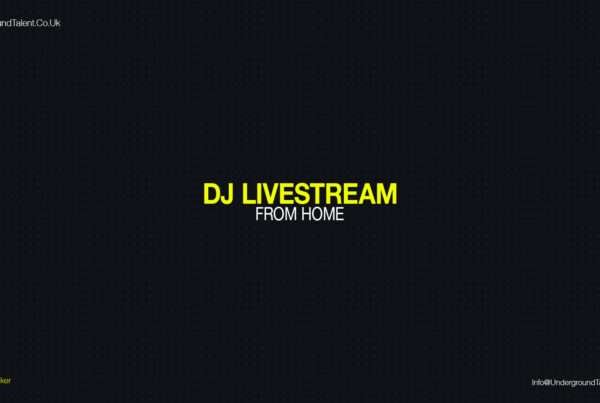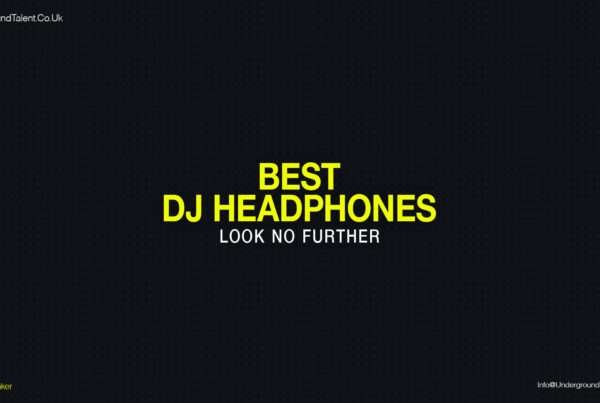Introduction | DJ Prices for Electronic Music Artists: How Much to Charge as a DJ for a Gig?
In techno and house music, or in general, in electronic music, DJs stand at the heart of the beat drop, yet one question often lingers in the air about DJ prices – “What’s the right price for a DJ set?” This conundrum resonates from underground clubs to the most pulsating festival scenes.
As a DJ, setting your rates isn’t just about hitting the right notes; it’s a dance of numbers, a blend of art and commerce that can leave many scratching more than just records. Whether you’re just starting to ride the rhythm or a seasoned mixer looking to fine-tune your financials, understanding DJ pricing is crucial. In this guide, we’ll unravel the mystery behind the decks, offering clear-cut insights for techno and house DJs to price their passion with confidence.
How Much to Charge as a DJ for a Gig?
The charge for a DJ gig varies widely; beginners might start at $100-$300 per gig, while experienced DJs can command $500-$2,000 or more. Factors influencing the price include the DJ’s fame, event type, set length, location, and whether they’re providing their equipment. It’s essential to consider these elements and compare them with standard rates in your area to set a competitive yet fair price for your services.
Let’s break it down and dive deeper!
Understanding the Market | Setting Up DJ Prices
DJ pricing can vary! Current market rates are as dynamic as the music itself, with emerging talent often starting at a few hundred dollars per set while headliners can command several thousand. It’s a spectrum influenced by a DJ’s clout, the gig’s scale, and the crowd’s anticipation.
Several factors play pivotal roles in determining what a DJ can charge. The type of event is a primary influencer – a high-energy techno night at a prestigious club may offer a more oversized purse than a laid-back house music lounge. The venue’s capacity and reputation are equally influential; larger, well-known spots often have budgets to match their status, allowing for higher DJ rates.
Geographic location has a significant impact on pricing. A DJ spinning in the throbbing heart of Berlin’s techno scene or the sun-kissed terraces of Ibiza might find higher rates than those in smaller, less established markets. It’s a dance of supply and demand, with some cities willing to pay a premium for DJs who can keep the crowd moving until dawn.
Understanding these factors is critical to setting a rate that not only reflects your worth but also harmonizes with the industry’s tempo.
Setting Your DJ Prices

Photo by Trent Haaland
Setting your DJ prices is a strategic session that requires you to sync your experience and skill level with the expectations of your audience. Here’s how to find the sweet spot:
- Determining Your Starting Rate
- Understanding Your Audience and Genre-Specific Rates
Determining Your Starting Rate
Assess Your Experience
Are you fresh on the scene, or have you been making waves for a while? Newer DJs might start with more modest rates to attract bookings and build a reputation.
Evaluate Your Skill Level
Consider the complexity of your sets and your technical prowess. More sophisticated skills can command higher rates.
Review Past Gigs
Look back at previous performances. What did you charge, and how was it received? Use this feedback to adjust your rates accordingly.
Understanding Your Audience and Genre-Specific Rates
Know Your Crowd
Are you playing for underground aficionados or a mainstream audience? Tailor your rates to what your audience expects and is willing to pay.
Research Genre Rates
Techno and house events may have different pricing standards. Investigate what other DJs in these genres are charging and why.
Consider the Venue
Smaller venues or those with a niche audience may have limited budgets compared to larger, more commercial clubs.
By harmonizing your experience with market expectations and genre-specific nuances, you can set a DJ price that resonates well with your audience and reflects your worth on the decks.
Techno and House DJ Set Pricing | DJ Prices
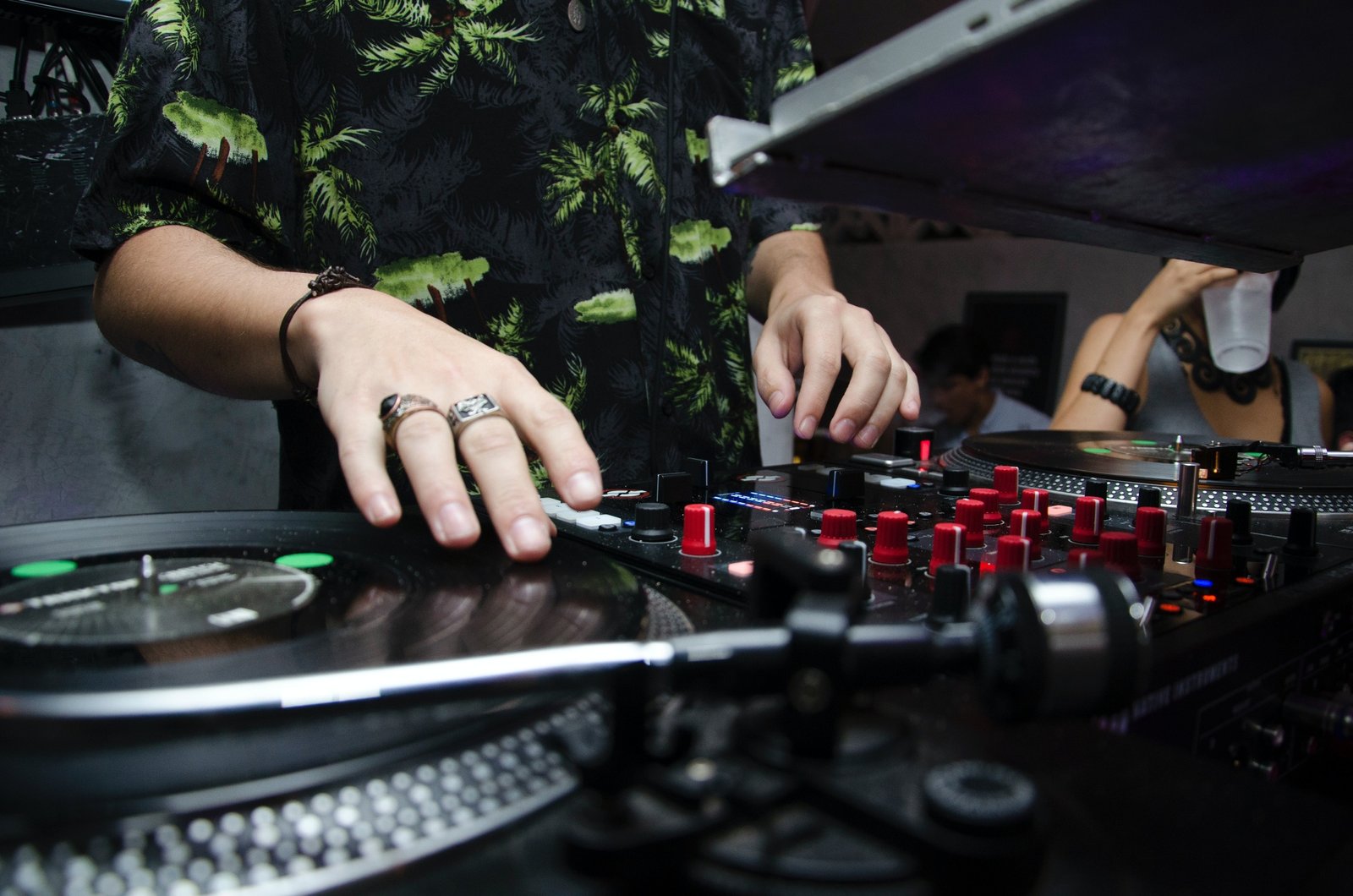
Photo by Isabella Mendes from Pexels
When pricing your techno or house DJ set, think of it as constructing the perfect track—every element matters. Here’s how to break it down:
- Duration of Set
- Equipment
- Travel
- DJ Set Pricing
Duration of Set
Short Sets (1-2 hours)
Ideal for opening or closing slots, these sets are typically priced lower.
Standard Club Sets (3-4 hours)
The most common duration for a DJ set pricing reflects the DJ’s ability to maintain energy and engagement.
Extended Sets (4+ hours)
These marathon sessions are priced higher due to the stamina and extensive music selection required.
Equipment
Using Venue’s Equipment
If the venue provides the setup, your rates might be lower since you’re not using your gear.
Bringing Your Gear
This can increase your rate, especially if you provide high-end or specialized equipment that enhances the performance.
Adding Travel Costs to DJ Prices
Local Gigs
Minimal travel costs mean you can charge a standard rate.
Out-of-Town Shows
Factor in travel expenses, accommodation, and the time spent travelling when setting your price.
Techno and House DJ Set Pricing
Club Events
Research what clubs in your area pay for similar sets. Techno clubs often seek DJs who can drive a consistent, hypnotic groove, while house music venues might prioritize DJs with a more soulful or varied selection.
Nightlife Venues
These can range from high-end bars to casual spots. High-end venues often have a larger budget for entertainment, reflecting higher DJ rates.
Remember, the key is to provide a clear breakdown of what your pricing includes. This transparency helps venues understand your value, ensuring you’re not just another line on their expense sheet but a crucial part of their success.
Calculating Your Worth as a DJ
Calculating your worth as a DJ is an introspective mix of self-assessment and market awareness. Here’s how to dial into your value:
Assessing Your Value:
- Technical Skills: Your ability to mix seamlessly, read the crowd, and your versatility in playing across various sub-genres of techno and house music can elevate your worth.
- Reputation: A strong reputation can be your golden ticket. If you’re known for energizing a crowd or have a signature style, venues will likely pay a premium for the experience you bring.
- Following: A loyal fanbase that follows you from gig to gig adds to your appeal. Venues will pay more for DJs who draw a crowd.
Value-Based Pricing vs. Time-Based Pricing:
- Time-Based Pricing: This model charges by the hour or set length. It’s straightforward but may not always reflect the true value of your performance, especially if you have a significant following or exceptional skills.
- Value-Based Pricing: This approach considers the overall value you provide, including your reputation, the unique experience of your set, and your ability to draw and retain a crowd. It’s not just about the time you play but the quality and impact of your performance.
When you’re in tune with your worth, you can confidently set rates that reflect your contribution to the event’s success. Remember, your price should resonate with the value your audience perceives and the venue.
Negotiating Rates and DJ price
Negotiating rates is like a DJ mixing tracks: it requires finesse, timing, and knowing your audience. Here are some tips to help you spin the negotiation in your favour:
- Negotiating Your Fees
- Adjusting Rates for Different Events
Negotiating Your Fees
Know Your Minimum
Before entering any negotiation, know the lowest rate you’re willing to accept.
Articulate Your Value
Be prepared to explain why you’re worth the rate you’re asking for. Highlight your experience, your following, and the unique aspects of your set.
Be Flexible but Firm
Show willingness to work with the promoter’s budget, but don’t undervalue your service. Find a balance that benefits both parties.
Consider Non-Monetary Benefits
Sometimes, the exposure, networking opportunities, or potential for future gigs can be worth a lower rate. Weigh these factors carefully.
Adjusting Rates for Different Events | DJ prices
Festivals
These often have larger budgets and can afford higher rates, especially if you play a prime slot.
Club Nights
Standard rates apply, but consider the club’s reputation and your potential draw when setting your price.
Private Parties
These can vary greatly. Corporate events may pay premium rates, while small private gatherings might have more modest budgets.
Remember, negotiation is a two-way street. It’s about reaching an agreement that both you and the event organizer are happy with, ensuring that when the beat drops, everyone feels like they’ve hit the jackpot.
Additional Revenue Streams to Boost your DJ prices
Monetizing your DJ skills extends beyond live gigs. Here’s a deeper dive into how you can turn the tables and create additional revenue streams:
- Residencies
- Teaching
- Producing
- Merchandising
- Streaming and Content Creation
- Collaborations and Sponsorships
- Music Libraries
- Consulting and Event Planning
Residencies | DJ prices
Steady Income
A residency can offer a reliable source of income and can often lead to further opportunities within the venue’s network.
Brand Building
Regular appearances help solidify your brand, making you a staple in the local scene and potentially leading to larger gigs.
Teaching | DJ prices
DJ Workshops
Share your expertise through workshops or masterclasses, which can be a rewarding way to give back to the community and earn income.
Online Tutorials
With the rise of e-learning, creating online courses or tutorial videos can attract a global audience willing to pay for your knowledge.
Producing | DJ prices
Music Production
Producing your tracks can generate additional revenue through sales, streaming, and licensing.
Remixing
Offer remixing services to other artists, which can also help expand your reach and portfolio.
Merchandising | DJ prices
Branded Merchandise
Develop a line of merchandise that reflects your brand as a DJ. This can include clothing, accessories, or even custom-designed audio gear.
Streaming and Content Creation | DJ prices
Live Streaming
Platforms like Twitch or YouTube can be monetized through subscriptions, donations, and ads during live streaming sessions.
Content Creation
Regularly publishing engaging content can attract sponsorships and ad revenue.
Collaborations and Sponsorships | DJ prices
Brand Partnerships
Collaborate with music brands, lifestyle companies, or event organizers for sponsorships.
Sponsored Events
Host events or streams sponsored by brands where you can showcase their products or services to your audience.
Music Libraries
Sound Libraries
Contribute to sound libraries for royalties or a flat fee.
Consulting and Event Planning | DJ prices
Consulting Services
Offer your expertise to venues or event organisers on creating successful music events.
Event Planning
Use your industry connections to plan and execute events, taking a cut of the profits.
By tapping into these diverse channels, you can maximize your revenue and ensure a more stable financial future while doing what you love.
Equipment and Overhead Costs | DJ prices
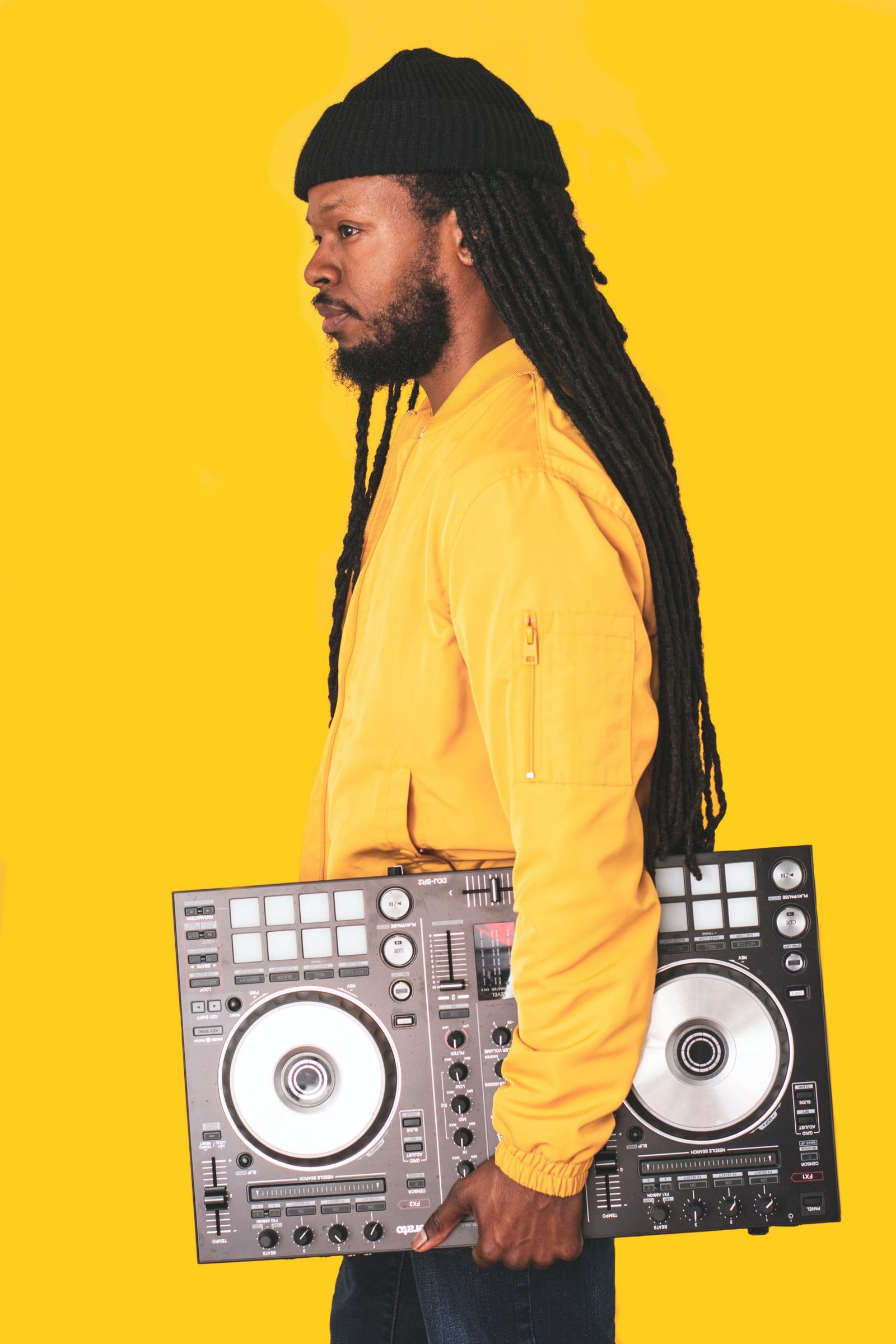
Photo by Malcolm Garret
The decks, mixers, and speakers are the tools of your trade, and they come with overhead costs that can significantly impact your pricing. Here’s how to ensure your rates are in harmony with these expenses:
- Impact of Equipment on Pricing
- Overhead Costs
- Factoring Costs into Your Rates
- Communicating Value to Clients
Impact of Equipment on Pricing | DJ prices
Initial Investment
High-quality DJ equipment is a substantial initial investment. Your rates must reflect this cost over time to ensure you’re not operating at a loss.
Quality of Sound
Premium equipment contributes to a better sound experience, a selling point you can use to justify higher rates.
Overhead Costs | DJ prices
Wear and Tear
Regular use leads to wear and tear, so you must set aside funds for repairs and maintenance.
Upgrades
The DJ industry continually evolves, with new technology constantly emerging. To stay competitive, you’ll need to upgrade your gear periodically, and your rates should account for this.
Factoring Costs into Your Rates | DJ prices
Depreciation
Consider the depreciation of your equipment over time and factor this into your rates to ensure you can replace gear when necessary.
Maintenance Reserve
Build a maintenance reserve into your pricing—a small percentage of each gig’s fee for equipment upkeep.
Upgrade Path
Have a plan for when and how you’ll upgrade your gear. Estimate these costs and distribute them across your projected gigs to determine how much to add to your rates.
Communicating Value to Clients | DJ prices
Transparency
Be transparent with clients about why your rates may be higher due to the quality of your equipment. Clients are often willing to pay more for superior sound and reliability.
Investment in Experience
Frame the cost of your equipment as an investment in the audience’s experience. High-quality gear contributes to a memorable event, which is valuable to clients.
By carefully considering the cost of your equipment and overhead, you can set rates that not only cover these expenses but also acknowledge the value they add to your performance. This ensures that your business remains sustainable and that you can continue to deliver high-quality experiences to your audience.
The Business of DJing | DJ prices

Photo by Inga Seliverstova from Pexels
DJing, much like any other passion-turned-profession, requires a shift from the art to the art of business. Here’s how to ensure the beats go on, even when the music stops:
- Treating DJing as a Business
- Financial Planning
- Sustainability in the Industry
- Legal and Insurance
- Tax and Legal Compliance
Treating DJing as a Business | DJ prices
Professionalism
Approach every aspect professionally, from prompt communication to honouring contracts and commitments.
Branding
Develop a solid personal brand. Your name and image are as much a part of your business as the music you play.
Networking
Build relationships within the industry. Connections can lead to gigs, collaborations, and opportunities you might not find otherwise.
Financial Planning | DJ prices
Diversify Income
Don’t rely solely on gigs. Explore the additional revenue streams we discussed earlier to stabilize your income.
Budgeting
Keep track of your income and expenses. Understanding where your money comes from and where it goes is crucial for financial stability.
Emergency Fund
Set aside funds for unexpected expenses or dry spells. The gig economy can be unpredictable, and having a financial cushion is essential.
Sustainability in the Industry | DJ prices
Continuous Learning: Stay updated on industry trends, new technology, and music. Continuous learning can lead to new opportunities and keep your sets fresh.
Health and Wellness
DJing can be demanding. Prioritize your health with proper rest, diet, and exercise to ensure longevity in the industry.
Mental Health
The pressure to perform and the irregular hours can affect your mental health. Have strategies in place to manage stress and maintain a work-life balance.
Legal and Insurance
Contracts
Have clear contracts in place for gigs to protect your interests. This should cover cancellation policies, payment terms, and liabilities.
Insurance
Consider insurance for your equipment and liability insurance for yourself, especially if you’re hosting events.
Tax and Legal Compliance
Taxes
Keep diligent financial records and understand your tax obligations. Hiring an accountant familiar with the entertainment industry can be a wise investment.
Legal Structure
Depending on your level of success, it might make sense to structure your business as an LLC or corporation for tax benefits and liability protection.
By embracing the business side of DJing, you can turn your passion into a sustainable career. Remember, the most successful DJs are those who not only know how to work the turntables but also know how to work the books.
Learning to Say No | DJ Prices for Electronic Music Artists

Photo by Cottonbro from Pexels
Learning to say “no” is a powerful skill in the DJ business, akin to a well-timed drop in a set that can elevate your career to new heights. Here’s why and how turning down certain gigs can be a sound move:
- The Power of ‘No’
- Strategic Rejection
- Long-Term Benefits
- Saying No with Grace
- The Ripple Effect
The Power of ‘No’
Value Your Worth
Saying no to low-paying gigs reinforces the value you place on your skills and time. It sets a precedent for your current and future clients about what you expect to be paid.
Quality Over Quantity
It’s better to perform fewer gigs at higher rates than to overbook yourself with poorly paid ones. This approach can lead to burnout and diminish the quality of your performance.
Strategic Rejection
Selective Gigs
Being selective about the gigs you accept can enhance your brand’s prestige. Playing at reputable venues or events can increase exposure and more lucrative opportunities.
Negotiation Leverage
When clients know you’re willing to walk away, they may be more inclined to negotiate better terms to secure your services.
Long-Term Benefits
Professional Growth
Turning down gigs that don’t align with your career goals or pricing standards frees up time to invest in professional development or to produce your music.
Market Positioning
Consistently upholding your rate standards helps position you in the market as a premium service provider, which can attract higher-paying clients.
Saying No with Grace
Be Polite and Professional
Always decline opportunities professionally. A respectful “no” can open the door for future collaborations at better rates.
Provide Alternatives
If you turn down a gig, recommend a fellow DJ who may be a good fit. This fosters goodwill and strengthens your network.
The Ripple Effect
Industry Standards
When established DJs maintain their pricing standards, it helps elevate the perceived value of DJ services across the industry.
Empowering Others
Your stance can inspire other DJs to advocate for fair compensation, contributing to a healthier, more sustainable industry.
By mastering the art of saying “no,” you not only affirm your value but also contribute to a culture where talent is appropriately rewarded. This not only benefits your career trajectory but also sets a positive example for up-and-coming DJs in the community.
“It’s only by saying NO that you can concentrate on the things that are really important.” – Steve Jobs
Final Thoughts and Tips on DJ Prices
As you navigate the beats and breaks of the DJ industry, remember that your passion for music is the core of your journey. Focus on honing your skills, curating your sound, and creating experiences that resonate with your audience. Your reputation as a DJ will flourish organically as you consistently deliver performances that capture the essence of techno and house music.
Remember that as your reputation grows, so does the value of your work. Please don’t shy away from revisiting your rates regularly and adjusting them to reflect your evolving skill set and market demand. Confidence in your art is not just about the tracks you play; it’s also about valuing your craft and the unique vibe you bring to every gig.
Negotiating fair prices is part of the artistry. Stand firm in your worth and communicate your value. Your art is an investment for both you and your clients, and it should be priced as such. Remember, every gig is a stepping stone to the next, and each one should contribute positively to your career trajectory.
Conclusion: DJ Prices | How Much to Charge as a DJ for a Gig?
Throughout this article, we’ve mixed a set of essential considerations for setting and negotiating your rates as a DJ. From understanding the market and calculating your worth to treating DJing as a business and learning when to say no, these components are crucial for a sustainable career.
As you spin your tracks and weave through the vibrant techno and house music scene, let your passion be the beat that guides you and your professionalism be the mix that defines you. The journey of a DJ is a dynamic and ever-evolving one, filled with highs that rival the most euphoric drops. Embrace it with the confidence and creativity you can bring to the decks.
Now, let the music play, knowing your value and the beat of your drum. The stage is set, the crowd awaits, and your journey as a DJ in the electrifying world of techno and house is just getting started. Let the rhythm of your growth be as infectious as the beats you drop, and may your career be as fulfilling as the music you love.
DJ Pricing FAQs
How much would a DJ cost?
The cost of a DJ can vary widely based on factors such as experience, event duration, location, and equipment needs. Rates can range from a few hundred to several thousand dollars.
What is the cost of hiring a techno DJ for a party?
Hiring a techno DJ for a party typically ranges from $50 to $5,000, depending on the DJ’s reputation, the length of the set, and the specifics of the event.
What do house DJs earn for festival gigs?
House DJs can earn anywhere from $100 to over $10,000 for festival gigs, with well-known names potentially commanding higher fees.
How much should a techno DJ charge for a residency?
A techno DJ’s residency rate should reflect their draw and experience, often starting at $100 per night and going up to several thousand dollars for more established artists.
What is the average cost for a techno DJ at a rave?
The average cost for a techno DJ at a rave can range from $50 to $5,000, influenced by the event’s scale, the DJ’s profile, and the location of the rave.
Get Your Free Sample Packs for Electronic Music Production
Dive into electronic music production with our freshly curated Free Techno Tools V1 and “Free Techno Tools V2” sample packs. These packs are brimming with high-quality sounds that will add a professional touch to your tracks. If you want to expand your sound library, these free sample packs are perfect for every techno enthusiast. Click on the links below to get these fantastic free resources and elevate your production game today!
&
Don’t miss this opportunity to enrich your sonic palette with top-notch techno sounds. Grab your free sample packs now and start crafting your next techno masterpiece!
Did you learn how to set your DJ prices? Connect with Underground Talent, and don’t miss out on more helpful content like this!
Connect with us on Facebook, Soundcloud, and Instagram. Share your thoughts and feedback on this article. We’re here to educate and inform you. Please email us at info@undergroundtalent.co.uk for questions or comments. Discover the latest underground talent! Subscribe to our YouTube channel now. Stay on top of fresh and exciting new acts in the techno scene. Join our community of techno music lovers today. Click the subscribe button.
And Always Remember…
Have Fun & Be Creative!

